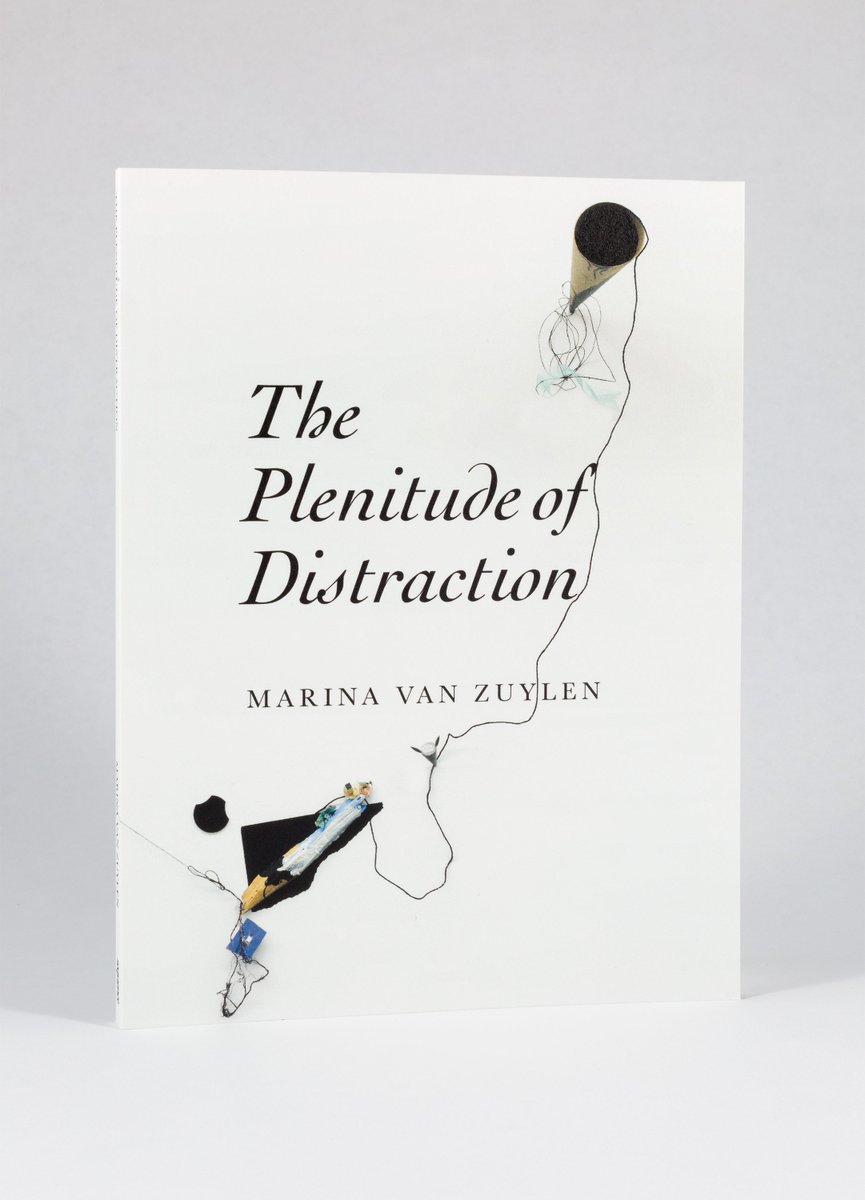
Marina Van Zuylen, The Plenitude of Distraction, Sequence Press, 2018.
A second look at distraction, extracting untold pleasures from its alleged dangers, defending and celebrating the unfocused life for the small and great wonders it can deliver.This short book takes a second look at distraction, extracting untold pleasures from its alleged dangers, defending and celebrating the unfocused life for the small and great wonders it can deliver. It tracks the paths of writers that built their works around non-linear thinking. Bergson called on distraction to sharpen our perceptions; Proust's greatest epiphany came from stumbling, not walking in a straight line; Nietzsche never trusted a thought that didn't come from perambulation. The wanderings documented in these pages carry none of the stigma of attention deficit. Quite the opposite. In Montaigne's words, there is a marvelous grace in letting thoughts be carried away at the pleasure of the wind. It is time to side with some of the great propagandists of so-called wasted time and cultivate controlled mental mayhem. Come join the ranks of the great hedonists of meandering thought.
This is a jewel of a book―an appropriately meandering reflection on the benefits of diversion, detour, boredom, and disorientation. In a culture wedded to attention and purposefulness, we have forgotten how valuable it can to be choose the indirect route, to allow ourselves to get lost. The Plenitude of Distractionruminates on the links between creativity and openness. How might one wander willfully, or achieve a state of “disengaged engagement”? Marina Van Zuylen shows how creativity and insight come to those who are willing to turn away from the always-urgent demands of the task-oriented life. The volume is itself an associative flânerie through the minds of Montaigne, Nietzsche, Hume, Cervantès, Dickens, Eliot, and more. This book plucks a small pleasure from the talons of the relentless, reasonable demands of every day. ―Scott Carpenter
Marina van Zuylen is Professor of French and Comparative Literature at Bard College. She was educated in France before receiving a B.A. in Russian Literature and a Ph.D. in Comparative Literature at Harvard. She is the author of Difficulty as an Aesthetic Principle: Realism and Unreadability in Stifter, Melville, and Flaubert (G. Narr, 1994) and Monomania: The Flight from Everyday Life in Literature and Art (Cornell University Press, 2005). She has taught at Harvard, Columbia, Princeton, and the University of Paris VII. She also serves as the national academic director of the Clemente Course in the Humanities.

No comments:
Post a Comment
Note: Only a member of this blog may post a comment.